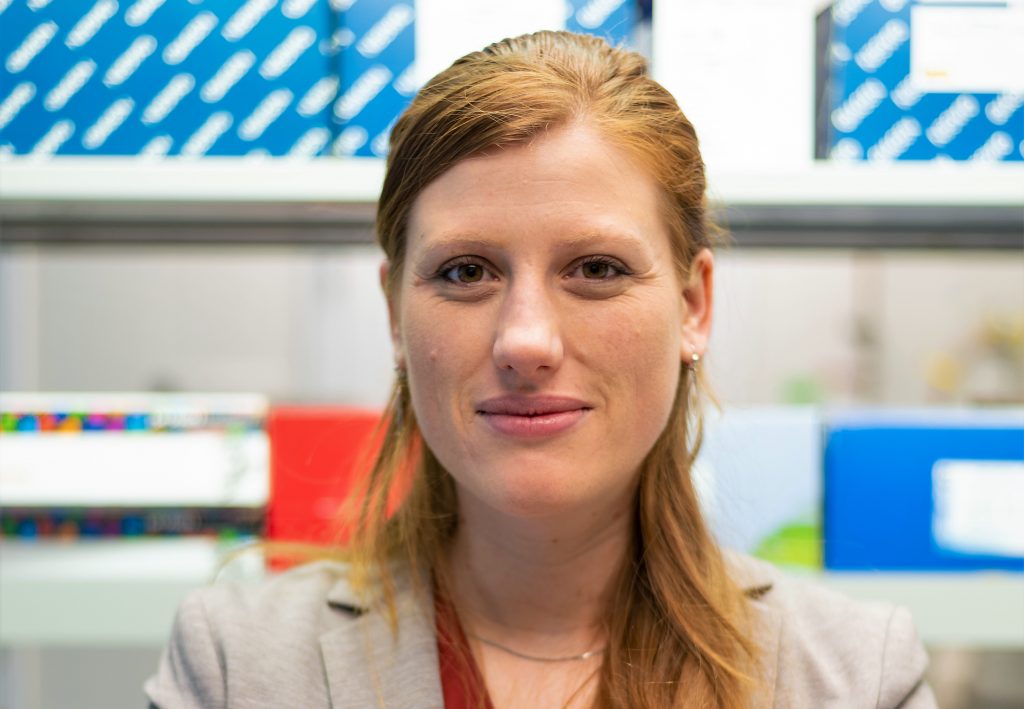We’re taking time to get to know the members of the GSA’s Early Career Scientist Committees. Join us every week to learn more about our 2019 early career scientist advocates.

Ina Anreiter
Early Career Scientist Steering Committee
Department of Computer Science; University of Toronto
Research Interest
I’m a molecular biologist and behavioral geneticist, interested in the gene regulatory mechanisms underlying behavior. My PhD research focused on two aspects of (epi)genetic behavioral regulation: individual variation in behavior; and the regulation of multiple behaviors by a single gene (behavioral pleiotropy). Using fruit flies as a model, I investigated how epigenetic and post-transcriptional regulation of a single gene—the foraging gene—affects gene expression and consequently the regulation of feeding behavior and metabolism. The genetic background of flies influences this regulatory process, giving rise to individual variability in behavior.
foraging is a highly pleiotropic gene that affects many different phenotypes, such as feeding behavior, metabolism, learning and memory, and sleep. This behavioural multi-functionality is achieved by a complex gene structure and many independently regulated gene products. It is important to understand how a gene’s multiple functions are regulated because manipulations aimed at one function of the gene can have unpredicted consequences due to its alternate functions. For instance, if a gene has functions in both smooth muscle development and regulating blood pressure (as the human homolog of foraging does), drugs targeted at altering one of those functions might result in unexpected side-effects due to the gene’s other function.
As a PhD-trained scientist, you have many career options. What career paths interest you the most?
For my PhD and now for my post-doc, I’ve been at the intersection of fields. For my PhD, I’ve worked on epigenetics and behaviour in fruit flies, a relatively unexplored area. For my post-doc, I am pursuing a project that combines my knowledge in fruit fly genetics and computational biology, a new field for me. I am passionate about this sort of interdisciplinary, exploratory research, which is supported by an academic environment. Thus, I can easily envision an academic career. However, I am also very interested in translational research, having worked with translational research groups such as the Child and Brain Development Program of the Canadian Institute for Advanced Research. Because of this experience, I can also see the appeal of private sector research, which is more focused on translating basic research findings into applications for human benefit and policy.
In addition to your research, how else do you want to advance the scientific enterprise?
Topics like mental health and life-work balance are starting to be widely discussed in the scientific community, and I think a concerted effort to improve upon these issues would advance science as a whole. Assuring individual and community well-being will boost productivity and retain people in research-intensive careers. In my own experience, many struggles that early career researchers face are aggravated by a lack of open dialogue, with their supervisors or the community. Although a scientific career is likely to be always demanding, and thus not stress-free, I think that as a community we can improve how we set and communicate expectations and how we deal with failures and setbacks.
I’d like to play a role in advocating for widespread changes in scientific work culture to ensure that expectations of early career researchers are realistic and in the best interest of scientific advancement. Furthermore, I’d like to engage in initiatives that not only promote open dialogue about dealing with struggles, but also about how to address and overcome these struggles in a positive way. The GSA Early Career Scientist Leadership Committee is a first step for me towards this goal.
As a leader within the Genetics Society of America, what do you hope to accomplish?
Societies like the GSA are ideally positioned to provide both a platform of support for early career scientists, and to advocate for change within the science community. In my own experience, one of the most comforting things in stressful situations is to realize that you’re not alone, that people understand your struggles, and that others have found ways past the same struggles. Therefore, I would like to work toward building resources that would connect researchers at all stages and provide a place where they could share concerns and advice. They should also investigate the most pressing and common concerns of early career researchers.
These resources could be in the form of both private peer discussion forums or virtual cafes and open blog posts that synthesise researchers’ most common worries and include advice from experienced researchers on how to surpass them. As a member of the Steering Committee, I’m excited to help developing and organizing such resources, including the Early Career Researcher Seminar Series and Early Career Virtual Cafes. We are also working on discussions aimed at addressing both scientific challenges and career development questions.
Previous Leadership Experience:
Steering Committee – Early Career Scientist Leadership Program of the Genetics Society of America
President – Ecology and Evolutionary Biology Graduate Student Association, University of Toronto
Science Graduate Affairs Committee – Faculty of Arts and Science, University of Toronto
Early Career Peer Review Program – Genetics Society of America
Program Reporter – Child and Brain Development Program, Canadian Institute of Advanced Research































